-
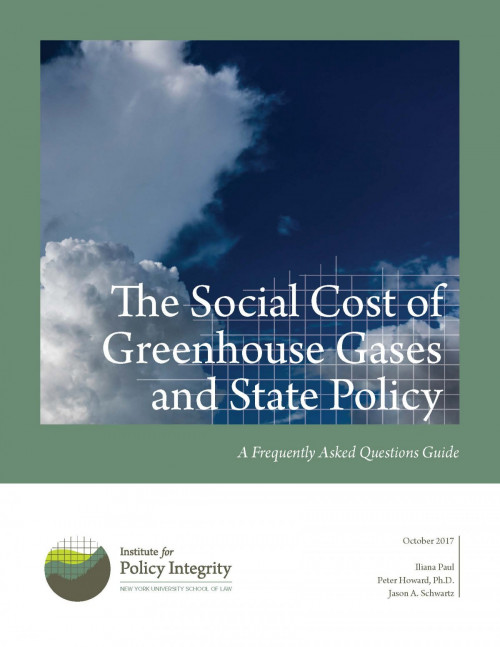
The Social Cost of Greenhouse Gases and State Policy
A Frequently Asked Questions Guide
States can benefit from using the social cost of greenhouse gases to aid in making rational policy decisions in a transparent manner. Many states are already using these metrics in their decisionmaking. This report provides information on several issues related to the social cost of greenhouse gases, including discount rates, time horizons, and the global nature of the estimate.
-
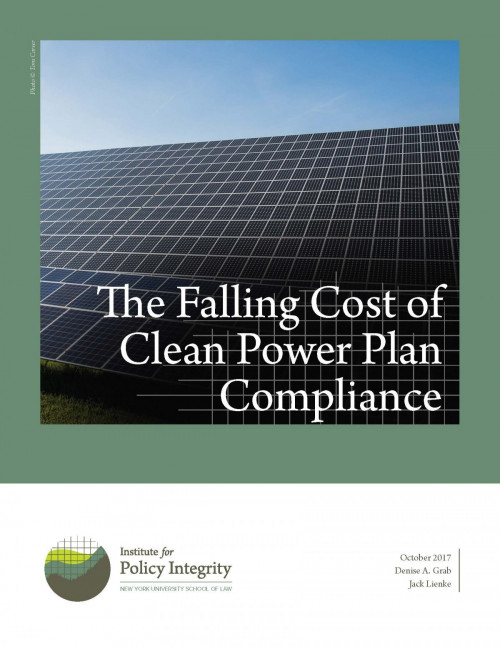
The Falling Cost of Clean Power Plan Compliance
In 2015, the U.S. Environmental Protection Agency (EPA) released the Clean Power Plan, a Clean Air Act rule designed to address the threat of climate change by cutting carbon dioxide emissions from fossil fuel-fired power plants. As part of that rulemaking, the agency prepared an estimate of compliance costs, which it found would be far outweighed by the rule’s climate and health benefits. Since that time, changes in the electric sector have made it even cheaper to meet the rule’s emission targets than EPA anticipated. This report summarizes the findings of EPA’s 2015 Regulatory Impact Analysis; discusses subsequent market and policy developments that have lowered the cost of complying with the Clean Power Plan; and surveys more recent analyses by independent groups, which have estimated substantially lower compliance costs than EPA did.
-
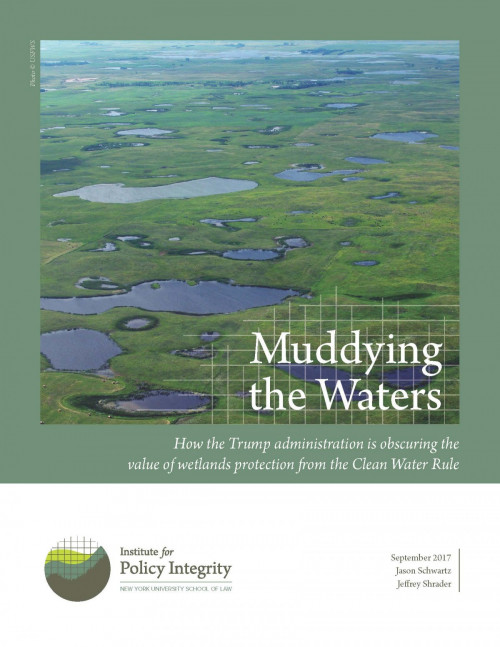
Muddying the Waters
How the Trump administration is obscuring the value of wetlands protection from the Clean Water Rule
In 2015, the Environmental Protection Agency and Army Corps of Engineers revised the definition of the “waters of the United States” as part of the Clean Water Rule. This revised definition was expected to increase the wetland area subject to protection under the Clean Water Act, and an economic analysis conducted by the agencies at the time showed that the benefits of the rule would substantially outweigh the costs. Under the Trump administration, the agencies now propose to repeal the 2015 Clean Water Rule and have issued a revised economic analysis in support of that decision. In the new analysis, the agencies now claim that the majority of the benefits in the 2015 analysis cannot be quantified, making it appear that the Clean Water Rule is not cost-benefit justified. The agencies have violated many of their own requirements for conducting economic analysis to arrive at this conclusion, and a more comprehensive assessment of the evidence shows that the 2015 Clean Water Rule is still cost-benefit justified. Repealing the 2015 Rule would forgo substantial environmental and economic benefits.
-
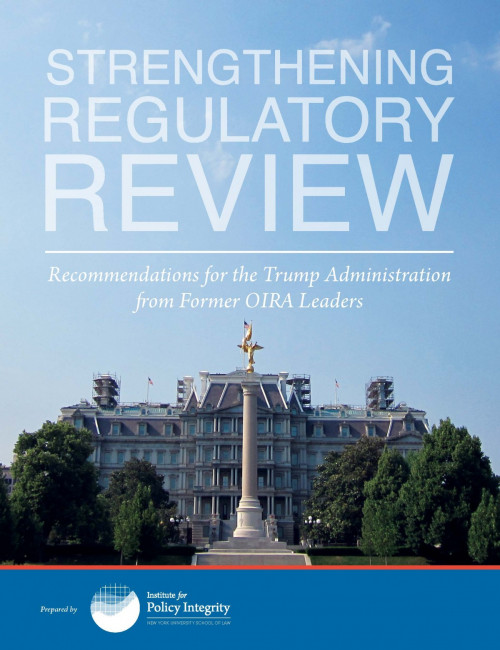
Strengthening Regulatory Review
Recommendations for the Trump Administration from Former OIRA Leaders
This report contains a set of recommendations for the Trump Administration that, if implemented, would strengthen the process of regulatory review. These recommendations reflect the general consensus of a group of former Administrators and Acting Administrators from the Office of Information and Regulatory Affairs who served under both political parties.
-
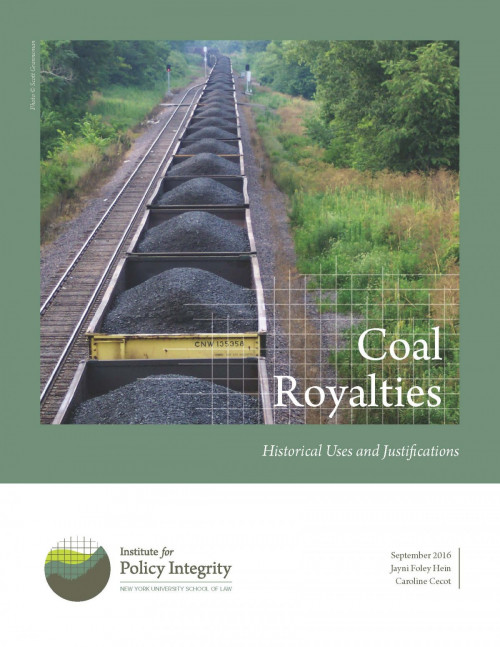
Coal Royalties
Historical Uses and Justifications
Royalties have been used as a policy lever to influence behavior and meet national goals for centuries. For example, royalties have been set at specific rates in order to: encourage resource production; encourage westward expansion; maintain the incentive to create new inventions; and deter socially undesirable behavior, to name just a few. This report concludes that it would be reasonable for Interior to adjust coal royalty rates to account for negative externalities that are not otherwise addressed by regulation. Historical uses, accepted economic justifications, legislative history, and examples of royalty use by private actors and in other industries discussed in the paper all support the determination that it would be reasonable for Interior to increase coal royalty rates to account for externality costs and to better align the federal coal program with national climate change priorities.
Viewing all publications in Research Reports
